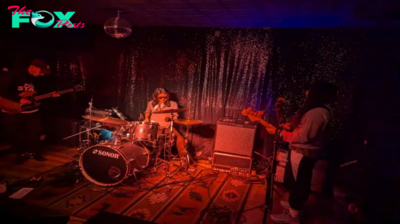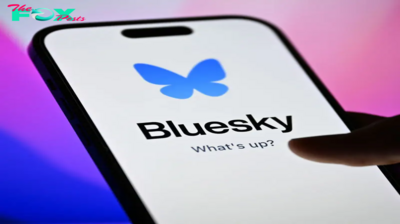Entertainment
FKA twigs Creates Deepfake AI Version of Herself With a Special Use in Mind
British singer-songwriter FKA twigs, born Tahliah Debrett Barnett, testified before the U.S. Senate Judiciary Subcommittee on Intellectual Property on Tuesday about the dangers of artificial intelligence. She relayed that she was especially concerned as an artist whose music and performances are used by third parties to train artificial intelligence models. She said that the power of this technology has become especially apparent to her as she has attempted to build a deepfake version of herself.
“In the past year, I have developed my own deepfake version of myself that is not only trained in my personality, but also can use my exact tone of voice to speak many languages,” the singer said in her statement. “I will be engaging my ‘AI twigs’ later this year to extend my reach and handle my online social media interactions, whilst I continue to focus on my art from the comfort and solace of my studio.”
FKA twigs stressed that in certain cases, deepfake Technology can be useful and practical, so long as it is used with the consent of the person it is imitating. “These and similar emerging technologies are highly valuable tools both artistically and commercially when under the control of the artist. What is not acceptable is when my art and my identity can simply be taken by a third party and exploited falsely for their own gain without my consent due to the absence of appropriate legislative control,” she argued.
The musician especially encouraged those in power to enact legislation to control deepfake Technology, and warned them not to repeat the mistakes made when the internet was first invented. “Three decades ago, we did not realize that the internet would embed itself so deeply into the core of our everyday lives. Policies and controls to keep pace with the emergence of the Technology were not put in place to protect artists, young people, those who are vulnerable,” she said.
FKA twigs is not the only person to voice concern about the use of personal intellectual property by generative AI companies. On Tuesday, a group of eight American newspapers announced that they would be suing Microsoft and Open AI, the maker of ChatGPT, for using their work as training data without consent.
The U.S. still does not have any federal laws criminalizing the use of deepfake technology without the permission of the person being impersonated. This has been particularly harmful for people in abusive relationships, who are increasingly becoming victims of revenge pornography using deepfake technology.
Earlier this year, deepfake pornographic images of Taylor Swift were widely circulated across social media platform X (formerly Twitter), highlighting the need for new legal protections. Content moderators took them down, bringing the issue to the attention of the public.
-

 Entertainment1h ago
Entertainment1h agoPHOTO GALLERY: The Seaside Boys – OLG Stage at Fallsview On line casino – Niagara Falls, Ontario – November 16, 2024
-

 Entertainment6h ago
Entertainment6h agoAmerica On CoffeeWe’re simply inviting you to take a timeout into the rhythmic ambiance of our breakfast, brunch and/or espresso picks. We’re completely happy everytime you cease by.“All the time Keep in mind Us This Method” Woman Gaga
-

 Entertainment7h ago
Entertainment7h agoHow to See Ava, Chiang Mai Night Safari’s Golden Tiger
-

 Entertainment9h ago
Entertainment9h agoAnna Delvey Reunites With Ezra Sosa and Flips Him Off Ahead of ‘Dancing With the Stars’ Finale Return
-

 Entertainment12h ago
Entertainment12h agoMethods to Recharge as an Actor
-

 Entertainment12h ago
Entertainment12h agoWeak Sign: October 4, 2024 Tubby’s
-

 Entertainment12h ago
Entertainment12h ago‘Gladiator II’ Ending Breakdown: Did Lucius Realise Maximus’ Dream of Rome?
-

 Entertainment17h ago
Entertainment17h agoGet to Know Bluesky, the New X Alternative with 18 Million Active Users


























